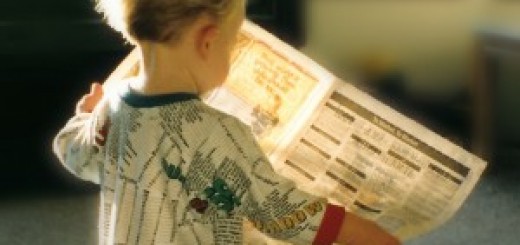Bar Mitzvah Madness

Yesterday’s Washington Post featured yet another in an ongoing cycle of articles about lavish Bar and Bat Mitzvahs — the Post’s unique angle is that the spending is getting worse. It used to be that renting a football stadium was the height of excess; now, the Washington Post says: “Hundreds of New York bar mitzvahs cost $100,000 or more. Many top the quarter-million-dollar mark.” The $10 million “Mitzvahpalooza” thrown by David Brooks for his daughter Elizabeth will, it seems, soon be outspent by some yet-to-come-forward billionaire.
Eight years ago, the Baltimore Jewish Times started a “Shine” feature, celebrating local Bar and Bat Mitzvah celebrations. But which celebrations did they celebrate? The ones that were furthest off-base. As I wrote then:
The editors introduce us “to an outstanding achiever from the community… who expresses their [sic] unique devotion to Judaism.” But who is this outstanding achiever – someone who visits nursing homes to cheer the elderly, or a young scholar who has been tested on entire sections of the Mishnah? No – it is a young man celebrating his interest in soccer, or a young woman planning to attend a school for the arts, performing a dance to represent Miriam’s.
Extracurricular activities are appropriate when they build upon a solid foundation, a real Jewish education – but can they replace it? It seems that we have lost the very meaning of the words “bar mitzvah:” one who is obligated by the commandments, one who must now assume the responsibilities of a young Jewish adult, to learn, to teach, and to perform. Yet those who recognize the magazine will agree that none of the featured participants thus far have demonstrated a particularly deep level of commitment.
Fortunately, the BJT radically changed the feature after only a few short weeks. I think they started to realize the same thing — or heard my criticism from myself and others, and realized we were right. The idea is not to create a celebration that even non-Jews want to imitate for their kids. The party should merely be one part of a Jewish coming of age that initiates a (uniquely Jewish) lifelong dedication to learning our Torah and performing our Mitzvos. Huge sums are not merely wasted — they are counter-productive to the Jewish future of the very child supposedly being feted.



I find it funny and sad that many of these people with huge amounts of money defend having
treif-catered affairs because of the cost of kosher food. This is of course, only from those
that consider kosher even for a second, which is probably a minority of the parents of
bar/bat mitzvahs.
speaking of the washington post and unique “Jewish” ways to spend money, you must see this!
http://www.washingtonpost.com/wp-dyn/content/article/2005/11/30/AR2005113000454.html
This is silly, but is it really counter productive?
Look at it from the perspective of the very Reformed child and what [s]he learns as Judaism. In general, that is very little. Shabbat may or may not exist. Some holiday rituals, such as lighting the Chanukiya or dressing up on Purim, are fun – but they less exciting than their competition, computer and video games. Maybe the parents take their kid to the synagogue three days a year, but those are Rosh Hashana and Yom Kippur, hardly attractive services from the perspective of a young child.
It is possible that the kid learns about Halacha, but if so, [s]he probably learns about it as a list of restrictions. Don’t watch videos, play video games, and get out of the house on Shabbat (OK, it’s don’t drive – but for a suburbanite kid those are equivalent). Don’t eat at many of your friends’ houses, or many of the normal foods.
Then, as the kid nears Bar Mitzvah age (the term is often used for both genders), [s]he gets to go to an after-school/Sunday activity to learn how to lead services. Exactly what elementary school kids have always wanted – to spend more hours in a classroom, learning another alphabet so they can read syllables they cannot understand.
The big party at least shows Judaism as fun, instead of extra tasks the kid doesn’t want.
These parties do not show Judaism as fun, because live bands and candle-lighting ceremonies on Shabbat, and feasts of
treif food (and I don’t just meant “not under hashcagah,” I mean un-schected meat at best and pork and shellfish at
worst HAVE ZERO to do with JUDAISM. Let the kids have fun, just don’t call your fun, that involves “How many ways can we possibly violate the laws of Judaism in one event” Judaism.
Lest people think me a right-wing fanatic, I should point out that many to most of non-Orthodox bar/bat mitzvahs include elements that are forbiden even by Conservative interpretations of halacha.
David,
Maybe I used the wrong term. I should have said: “perceived as Judaism by the kid”. But I still stand by my main idea: kids who have fun experiences that they consider to be Judaism are more likely to search for more information when they grow up than kids who grow up with bad experiences that they consider to be Judaism. Information about authentic Judaism is easily available once they decide to look.